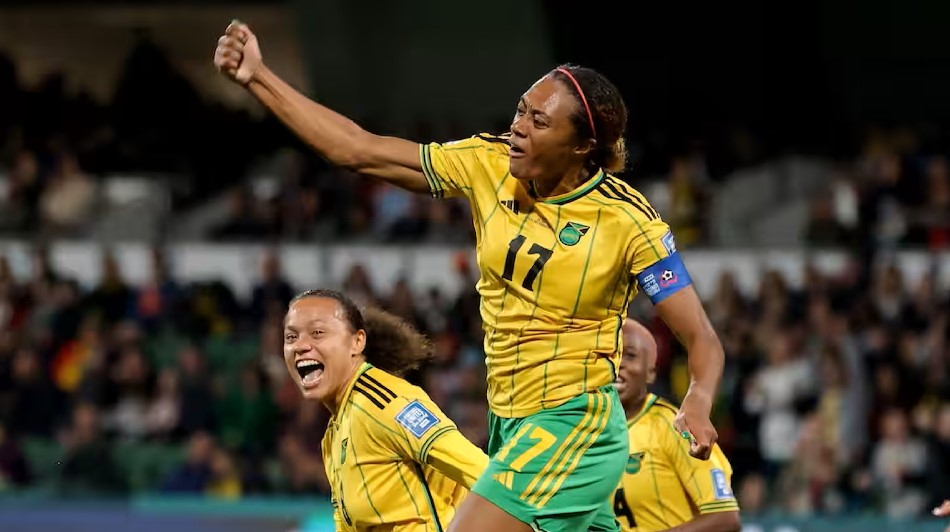Jamaica's football team is the first Caribbean team to ever make it through to the knockout stage of a Women’s World Cup. The Reggae Girlz' World Cup dream stopped at the Round of 16 though, after Colombia scored a second-half goal to send the Jamaicans home and will take on England in the Quarterfinals.
Getting the Jamaicans to the 2023 tournament - co-hosted by Australia and Aotearoa New Zealand - was an extraordinary journey in itself. After failing to qualify for the 2007 Women's World Cup and 2008 Olympic Games, the Reggae Girlz were disbanded.
Their fortunes changed six years later when Cedella Marley - the daughter of reggae legend Bob Marley - learned of their existence, and that the Jamaica Football Federation (JFF) had stopped funding them, in favour of the men's team.
Marley said: "My son brought home a flyer from his school and it said, 'Please help the Jamaica women's team'. I think it was under-15, actually.
"Long story short, I called the federation. I just asked some questions. I said, 'What is this? What's needed? What happened?'" Marley said the more she found out, the more "upset" she got.
"I just thought, 'Well, why stop funding for a women's team?' What was the problem?" she said. “It wasn't that they weren't winning, it wasn't like they weren't showing up for games, it was just because they (the JFF) had to prioritise."
After failing to qualify for the 2015 World Cup, the team disbanded again in 2016. But in 2019, through the continued efforts of the team's "fairy godmother" Marley and others, Jamaica became the first Caribbean country to qualify for the Women's World Cup. While they were knocked out during the Group stage, the team qualified again in 2023.
Ongoing financing issues put the team's participation in jeopardy - so much so that midfielder Havana Solaun’s mother started a GoFundMe to help pay for their training camp, food, staff support and travel for the 2023 tournament. Another GoFundMe was also started by the Reggae Girlz Foundation.
Solaun's mother, Sandra Phillips-Brower, said: "If I can somehow make this journey smoother for them — and let them focus on what they'd love to do ... play soccer — they shouldn't be worried about the politics or getting a flight or getting accommodation.
"They should be able to go there and do what they qualified to do, just play soccer." The crowdfunding efforts came after players posted a lengthy statement to social media voicing their "utmost disappointment" at the JFF's handling of resources and compensation, which they said had impacted their preparation for the tournament.
"On multiple occasions, we have sat down with the federation to respectfully express concerns resulting from subpar planning, transportation, accommodations, training conditions, compensation, communication, nutrition and accessibility to proper resources," the statement said.
"We have also showed up repeatedly without receiving contractually agreed upon compensation." In a statement on its website the JFF sought to "clarify" media reports surrounding the Reggae Girlz' funding, saying it had "taken away the focus" of the team's "historic achievement".
It said: "The vast majority of the required funding was provided by FIFA, the Confederation of North, Central America and Caribbean Association Football (Concacaf), the government of Jamaica, Adidas, Bob Marley Foundation, corporate Jamaica sponsors, and the Reggae Girlz Foundation.
"The JFF would like to thank these sponsors as without their assistance, the Girlz and the other national teams would not be able to prepare or participate in any competition, including the World Cup."
